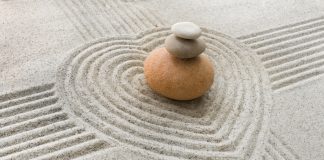Ayn Rand once said “Guilt is a rope that wears thin”. We’ve all had firsthand experience with the infamous cycle of guilt. You do something bad; you feel embarrassed, maybe you attempt to correct the mistake, but mostly you expect that the shame and embarrassment you felt will act as a deterrent for the behavior in the future. After a time, you release yourself from the guilt because you’ve done your time in the doghouse and the cycle continues in some form or fashion. In a way, feeling bad actually makes you feel productive, as though you’re one step further along in the process of repentance and mercy.
Religion is pervasive and is essentially the basis of what we call morality. We are taught in the modern moral society from the time we’re children if we’re not punished, and if we don’t take the time to bury ourselves in shame and guilt for poor decision making, how would we ever learn? The “guilty” stage is like a penance or rite of passage after causing an undesirable outcome. Afterall what kind of person would you be if you didn’t punish yourself for doing something that hurt someone else or yourself? But what if someone told you, this so-called step is not only unnecessary in the process of learning from one’s behaviors, but altogether inhumane and unproductive? And that there is a more conscious and efficient way to alter your behavior?
Think back to the most productive times in your life. How were you feeling? Shameful and depressed or empowered and joyful? If the answer was the latter, it will be easy for you to understand at least theoretically why you’ve been wasting your time, “feeling guilty” for your misdeeds all these years. Shame simply does not change behavior in a substantive way because people do not make sound decisions when they don’t see themselves as whole and capable to begin with. Shame or really any sort of judgement (whether it’s positive or negative) of a situation or self distorts or impairs our vision. It is sure way of seeing ourselves as small and weak and not connected to our innate quality of happiness where there is no judgement or opinion.
The beauty of happiness, is that it isn’t a judgement or opinion. It’s a state of being where being happy and joyful is just natural. Decisions made while we are in this state yields better results. Therefore, dangling pleasantness or happiness as a reward for good behavior as opposed to being the necessary foundation for appropriate behavior is simply incorrect and misguided. When your baseline is “happy” you’re not dependent on the events of your life to transpire in a certain fashion in order for you to be ok. That’s real freedom. With that freedom you’ll see the need to judge slowly falls off because you no longer have anything at stake. The emotions which accompany those judgements also subside and you’re empowered to act in accordance with what is required, not in accordance with your compulsions.
Next time you need to decide on a course of action, ask two very simple questions. Am I making decisions from a place of pleasantness, or am I allowing my decisions to be guided by stress or pressure? This will allow the necessary space to then address “If I were XYZ how would I want to be treated in this situation?”. By asking these questions you invoke consciousness, and will therefore always be doing your best with every situation you’re confronted with. Which is really all you and anyone else can ask.
47 Most Famous Motivational Quotes of All-Time
49 Greatest Love Quotes
37 Inspirational Quotes that Will Change Your Life






























